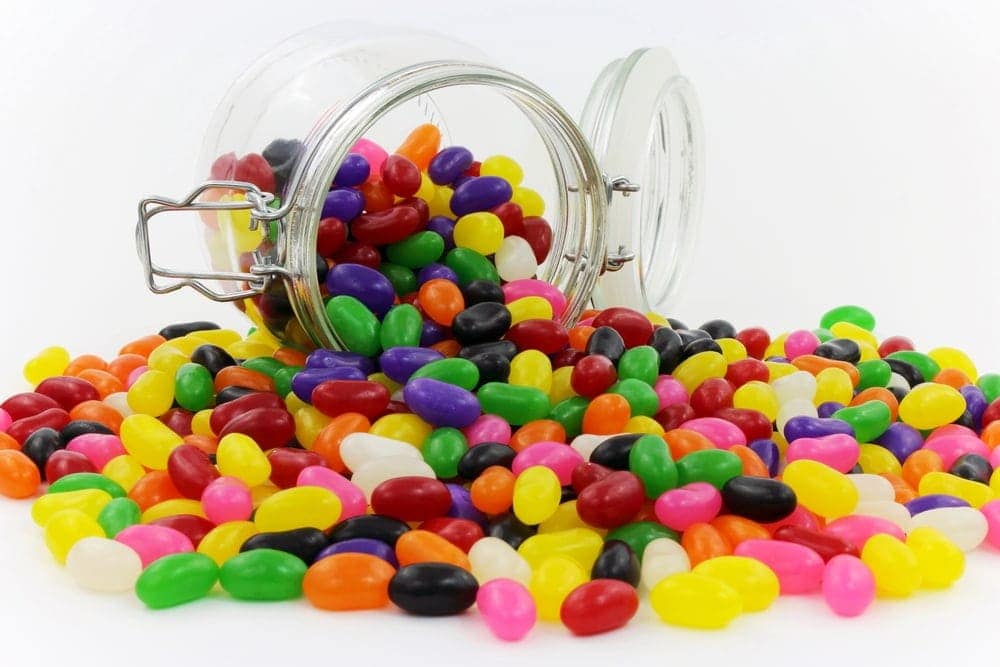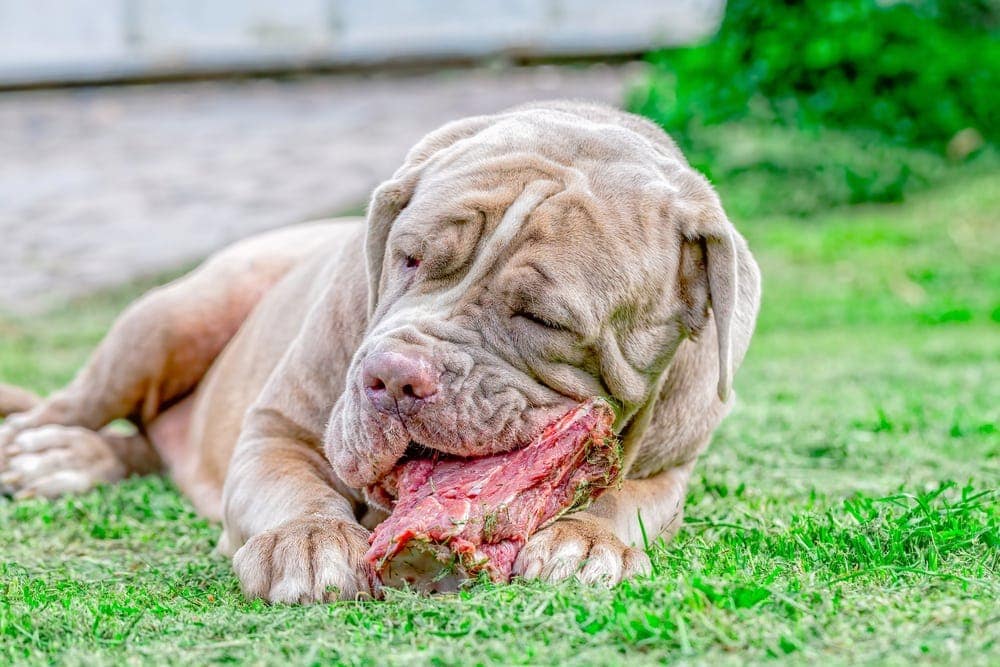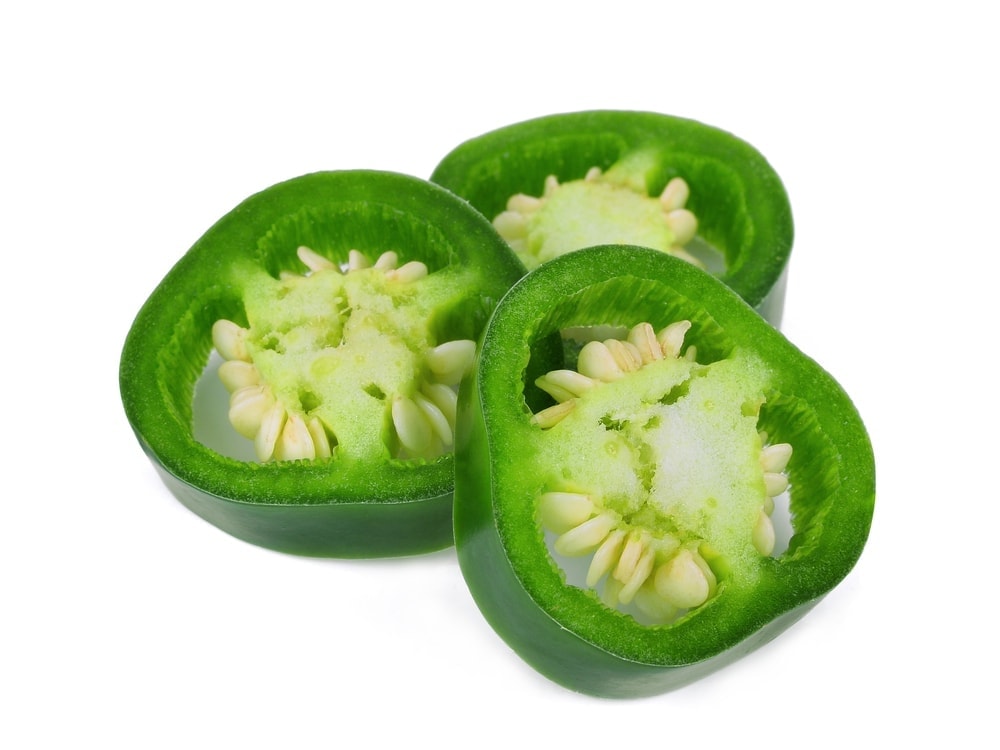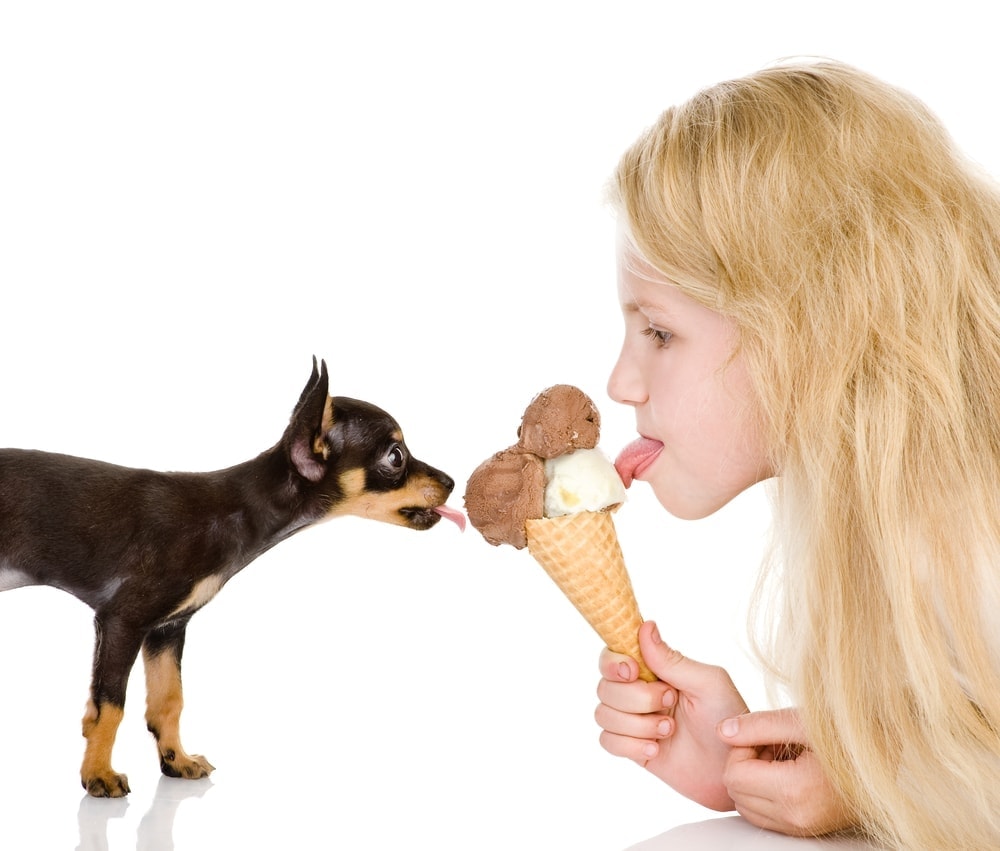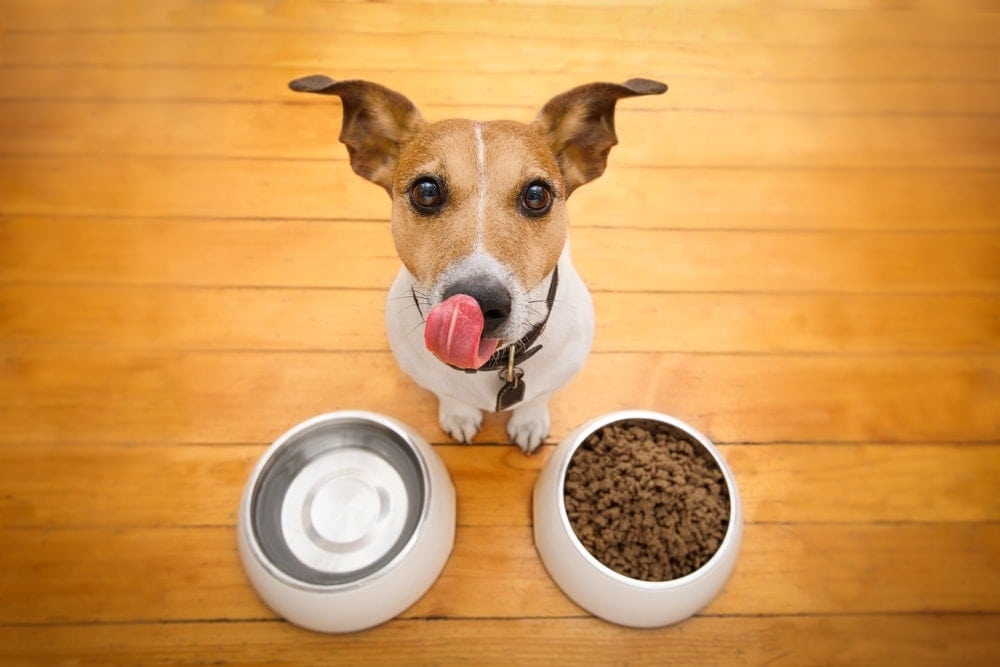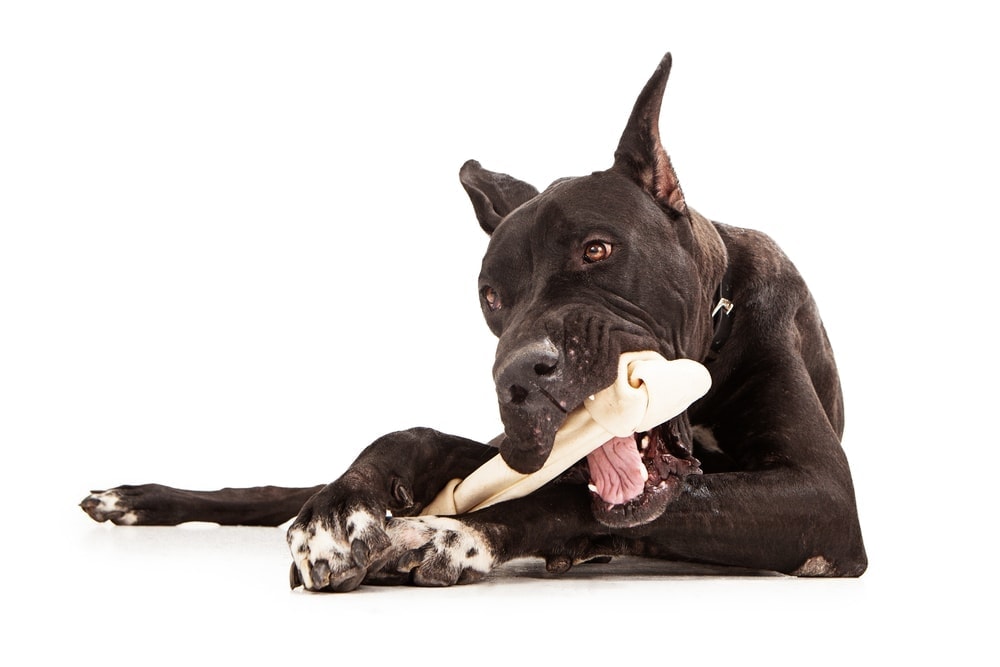Lots of jellybeans are not recommended even to humans. It contains lots of unhealthy ingredients like sugar, xylitol, and caffeine. All of this can influence even large humans, so what can then happen to a small furry friend?
Jellybeans are made primarily of sugar and while it is not always deadly for dogs, it is unhealthy. Like many candies, especially sugar-free candies, jellybeans may contain xylitol, which is toxic to dogs.
I am sure you understand it and don’t feed your dog with sweets. But what will happen if your dog finds fallen jellybean or steal the candies from your table. How dangerous is it? Can dogs eat jellybeans?
If your dog has eaten jellybeans, first of all, you need to check the ingredients to know whether they are toxic. The amount of eaten candies matters a lot as well. Some of the ingredients can be harmful, or even fatal for our canine companions. Contact your vet immediately.
If you want to know more in detail what ingredients are safe and which are toxic keep reading the following article.
Why Jellybeans Are Harmful to Dogs
Not only is xylitol toxic to dogs, but jellybeans also contain pectin. This is used to treat diarrhea in dogs so too much of it can cause a dog to have constipation. Generally speaking, most artificially produced foods for humans and sweets are harmful to dogs in some way.
Health Risks of Jellybeans for Dogs
The major health risk of jellybeans for dogs is that they are very high in sugar. Sugar can cause long and short-term problems for the health of your dog. The immediate effect is that the high sugar content can disrupt a dog’s digestive system. If this happens, it can lead to gastrointestinal issues that can lead to an upset stomach. They may be uncomfortable, have diarrhea, and vomiting.
The long term health effect can include obesity, stress on their joints that can happen because of the weight gain, expensive dental problems due to tooth decay, and arthritis symptoms, and diabetes. The owner may also have long term veterinarian bills that can be high.
All of these problems are even harder on elderly dogs, small dogs, and dogs that do not get the daily exercise that they need to burn off the extra calories foods high in sugar can give them.
Jellybeans also contain pectin, which is a fiber product veterinarians use on dogs to treat diarrhea to help their stool to regulate and become firmer. If a dog eats too many jellybeans, they can develop severe constipation.
Another toxic ingredient found in some jellybeans is caffeine, which can cause overstimulation to the dog’s nervous system. This can make your dog very restless and hyper. Some dogs may even be allergic to the artificial dyes that are used to create the jellybean’s vibrant colors.

Xylitol—Why Is It Toxic
Xylitol is an artificial sweetener and is a naturally occurring alcohol that is found in some plant materials. It is categorized as sugar alcohol. This is the main reason that you should not feed your dog jellybeans because it can kill your dog.
They may experience vomiting; their blood pressure will drop, and may even cause seizures that can lead to death. If the dog gets to the veterinarian as soon as you notice anything wrong with your dog and gets treatment, they may be able to be saved. Even if you did not give your dog jellybeans, they could have gotten into the bag themselves. Dogs are curious animals and some will eat anything that smells or tastes good to them.
If your dog has xylitol poisoning they may experience lethargy, seizures, vomiting, and diarrhea. If you know your dog as eaten anything with xylitol, do not wait for the symptoms to appear but get your dog to the veterinarian immediately. Treat it as an emergency. Even a small amount can have devastating effects on your dog.
What Can Happen to a Dog If They eat Jellybeans
If you know that your dog has accidentally eaten some jelly beans, do not panic. Find the package and read the ingredients to see if they contain xylitol. If they do, then take your dog to the veterinarian immediately. You will want to take the package to your veterinarian and let them know approximately how much they have eaten. If they have only eaten a few, you may not need to take your dog to the veterinarian. Call your veterinarian and get their opinion as to whether you should bring the dog in or watch him.

If they have just eaten a few jellybeans, your dog may only have an upset stomach. They may also experience diarrhea or vomiting. Sometimes they may become withdrawn or quiet. Some may even stretch to try to relieve the pain in their stomach, like doing a “play bow.” Make sure that they have plenty of water to drink so if they start to vomit, they will not become dehydrated.
If your dog is suffering from gastrointestinal upset from eating a small number of jellybeans, a veterinarian suggests that for 12 hours, you should stop their normal diet to give their digestive system to settle down. Offer them a bland diet for three days, which consists of 75% boiled white rice and 25% boiled chicken.
If the symptoms do not get better or become worse, call the veterinarian. Check with your veterinarian first before you try the above treatment as they may want to see your dog first.
Conclusion
- Jellybeans should never be fed to a dog as there are many toxic ingredients in them.
- Make sure that your children know that they should not share their jelly beans with their furry pets.
- The most dangerous and toxic ingredients in jellybeans are xylitol and in most cases, deadly to your dog.
- Always check the ingredients of any people food, especially the sugary type, to see if it contains xylitol. It is a ubiquitous artificial sweetener.
- The sugar in jellybeans can cause tooth decay and since most dogs eat dry food, if they lose teeth or have dental problems, it can make it hard for them to eat.
- Before you buy or feed your dog any human food, read the ingredients to be sure that it does not contain anything harmful for your dog.
- Xylitol may also cause seizures, insulin surge, liver damage, hypoglycemia, which can lead to low blood sugar, and unstable walking. They may even have a brain hemorrhage.
- A dog’s diet should consist of mostly protein with a minimal amount of sugar and fat.
- Jellybeans is not a healthy treat for your dog so offer them something good for them like flavored dog biscuits or some homemade treats made especially for your dog.
